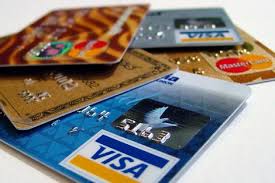Share This Article
 This month at Young Americans Bank, we’re talking about credit. It’s not “free money” as some young people may think.
This month at Young Americans Bank, we’re talking about credit. It’s not “free money” as some young people may think.
Credit is the borrowing of funds with the intent of paying them back. In almost every case, there is a charge for borrowing the funds. The charge is usually in the form of fees and/or interest.
Credit is considered an alternative to purchasing with money on hand , or deferring a purchase entirely. Credit costs money, all credit is a loan of some kind, and must be repaid with interest. However, credit can be a very useful and helpful thing.
Key Advantages to using credit:
- Can be used to purchase items, which could not otherwise be afforded at the exact moment
- Can give you safe and easy access to your funds, for example when you carry and use a credit card instead of cash; credit cards are accepted worldwide, may be hard to cash a check out of state.
- Allows you to handle financial emergencies such as those caused by fire, car accident, or medical.
- A good credit record is an indicator of fiscal responsibility. Many employers and landlords review your credit record before offering employment or signing a lease agreement.
Key Disadvantages to using credit:
- Costs money, a stereo bought on credit will usually cost more than paying in cash.
- Unless a strict budget is followed, monthly payments may be more than you can afford
- Future income is committed, so you’ll have fewer dollars to spend until the debt is repaid.
- Mismanaged credit can put you in danger of losing the very things you value most.
Check out this worksheet to learn more about credit.
Then take this quiz to see what you’ve learned.
Come into Young Americans Bank any time during February to pick up more information on credit best practices.



